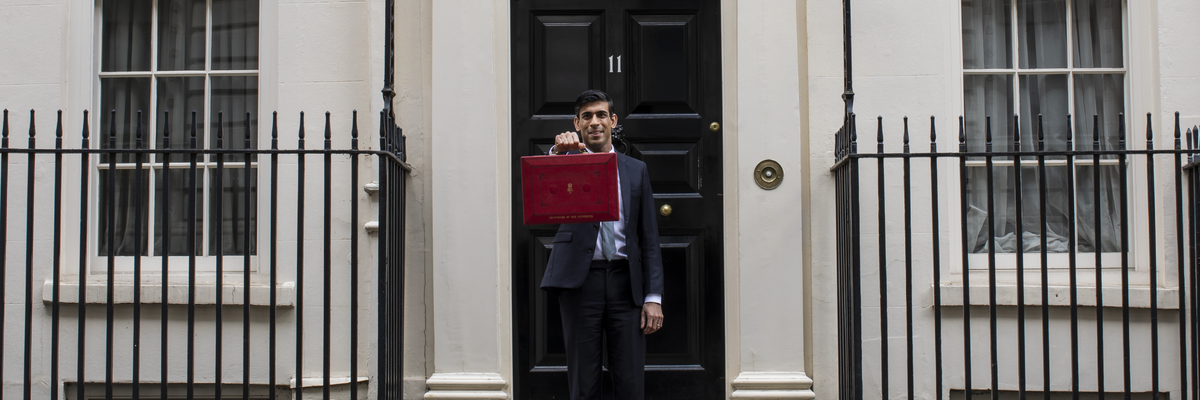Britons are more likely to prefer more public borrowing over tax rises or spending cuts but a majority expect such measures are inevitable
The UK is facing the largest economic decline in over 300 years, and chancellor of the exchequer Rishi Sunak is set to provide a road map for recovery in his Budget on 3 March.
With 41% of Britons saying Sunak is doing a good job, he remains among the most popular chancellors in recent years, even though his approval ratings have slipped from 59% at their peak in July last year. People are more likely to trust him (37%) than Boris Johnson (14%) on the economy. But with the largest amount of borrowing expected this financial year since the Second World War, unpopular decisions are inevitable.
The tools at Sunak’s disposal are reducing outgoings by lowering public spending, increasing the government’s income by raising various taxes, or borrowing more in the hope of growing the economy and dealing with rising debts once it’s in better shape.
At the Conservative party conference in October, he vowed to keep supporting people and businesses but said the party could not pretend “there’s no limit on what we can spend”, and that “we can simply borrow our way out of any hole”.
Public spending cuts are more disliked than tax rises
Eleven years after the coalition government came to power promising a programme of austerity, such an approach is now very unpopular. Two thirds of Britons (67%) are opposed to the government cutting spending on public services once the pandemic is over, while only a fifth (20%) would support it.
Even among Conservative voters, a majority of 57% are against spending cuts, similar to most Labour supporters (81%).
Raising taxes that ordinary people pay is a hard sell too. About half of the public are against it (53%), while a third (35%) are in favour. Tory voters are slightly more likely to support tax hikes than not at 48% vs 44%, while Labour voters are less keen at 29% vs 62%.
People would rather see borrowing rise than tax increases
About half of Britons (48%) say the Chancellor should try to keep taxes down, even if it means national debt increasing, while about three in ten (28%) say reducing borrowing should take priority.
The split is similar when it comes to business taxes, with 45% of people saying it’s imperative to avoid any increases, while 30% worry more about borrowing.
Equal proportions of Labour and Conservative voters agree on the importance of keeping taxes down, at 51% each. But a higher number of Tory supporters share this sentiment when it comes to business taxes than Labour voters (53% vs 42%).
Tax rises are unpopular but many regard them as necessary and inevitable
Despite the opposition to higher taxes, half of the public (49%) say public finances cannot realistically recover without ordinary people being taxed more. Only a third of people (32%) believe otherwise.
Opinion is more divided on the need for spending cuts, with 40% of Britons saying the economy can bounce back without reducing public spending while 37% disagree.
Britons are also overwhelmingly convinced that, regardless of public opinion, the government will raise taxes that ordinary people pay (77%) and cut spending on public services (76%).











